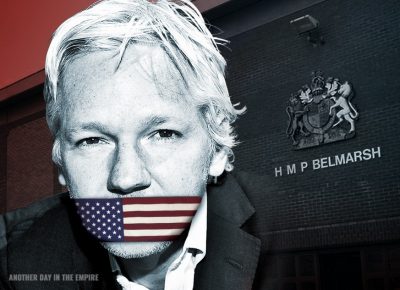‘Assange Cannot be Extradited to the US’, Lawyer Holds at Court
The treaty between the United Kingdom and the United States bans extradition for political offenses.

During a hearing before the Westminster Magistrates’ Court in London, Julian Assange’s lawyer, Edward Fitzgerald, requested Thursday that the founder of Wikileaks not be extradited to the United States arguing that the alleged crimes of his defendant have a political character.
Fitzgerald mentioned that the United Kingdom-United States extradition treaty bans extradition of persons linked to political offenses, which is precisely the situation of his defendant.
Today’s judicial action is part of the preparation of Assange’s extradition trial to the U.S., which is expected to take place on February 24, 2020.
On this matter, however, Clair Dobbin, representing the U.S. authorities, asked for the case to be delayed until April, which the Westminster Court did not accept.
The defense lawyer also reiterated his complaints about the “big problems” his team faces in contacting Assange in prison and recalled that the Australian journalist does not have access to a suitable computer to prepare his argument.
“On 22 Oct. 2019, Craig Murray, a former British Ambassador, published a detailed & shocking eye witness account of Mr Assange’s hearing the previous day, stating that he “exhibited exactly the symptoms of a torture victim.”https://t.co/driFrNl1Mw #StopTheTorture#FreeAssange pic.twitter.com/kZ3I3DXcvW
— Ariyana Love (@mideastrising) December 19, 2019
In November, 60 doctors from several countries sent an open letter to British Home Secretary Priti Patel warning her him that Assange could die in jail if he did not receive urgent medical attention.
Although he already served the 50-week jail sentence for breaking the conditions of his probation in 2012, he remains jailed because a court considered that he could escape the U.K. if he left the cell.
In June, former Home Secretary Sajid Javid signed an order to allow Assange to be handed over to the United States, where he could be sentenced up to 170 years in prison.
The U.S. authorities accuse him of conspiring to hack government computers and extract secret documents, which would have been published at the WikiLeaks portal.
On Friday, the Spanish judge Jose de la Mata will take a statement from Assange about the alleged espionage he was subjected to during his stay at the Ecuadorian embassy in London.
This interrogation is part of an investigation of the Spanish company Undercover Global, which was responsible for the security of the embassy.
*
Note to readers: please click the share buttons above or below. Forward this article to your email lists. Crosspost on your blog site, internet forums. etc.
Featured image is from Another Day in the Empire

